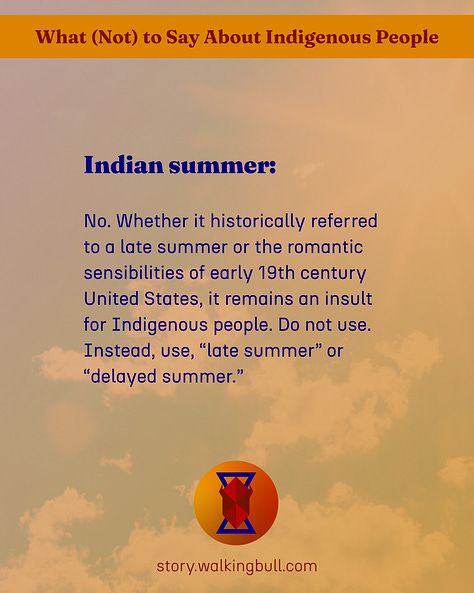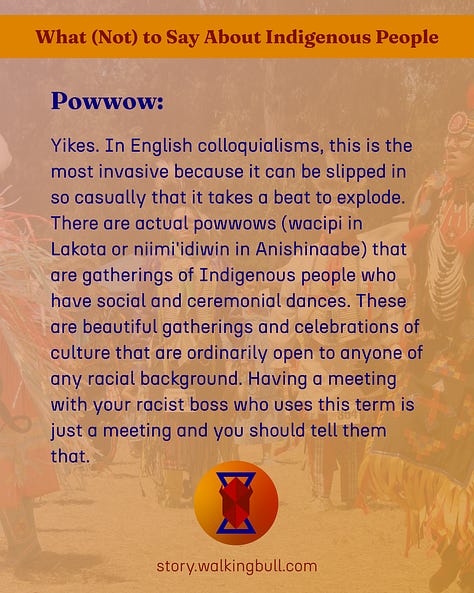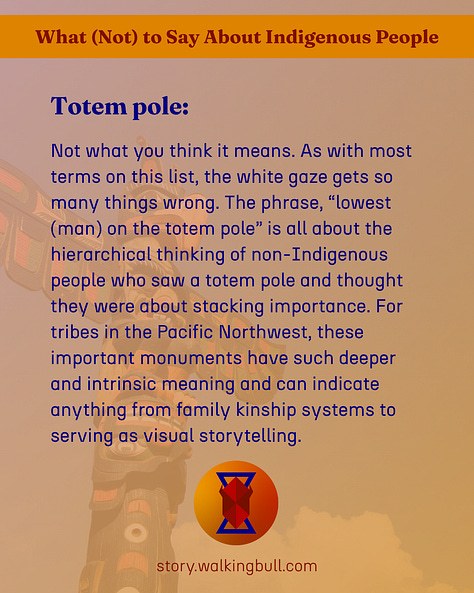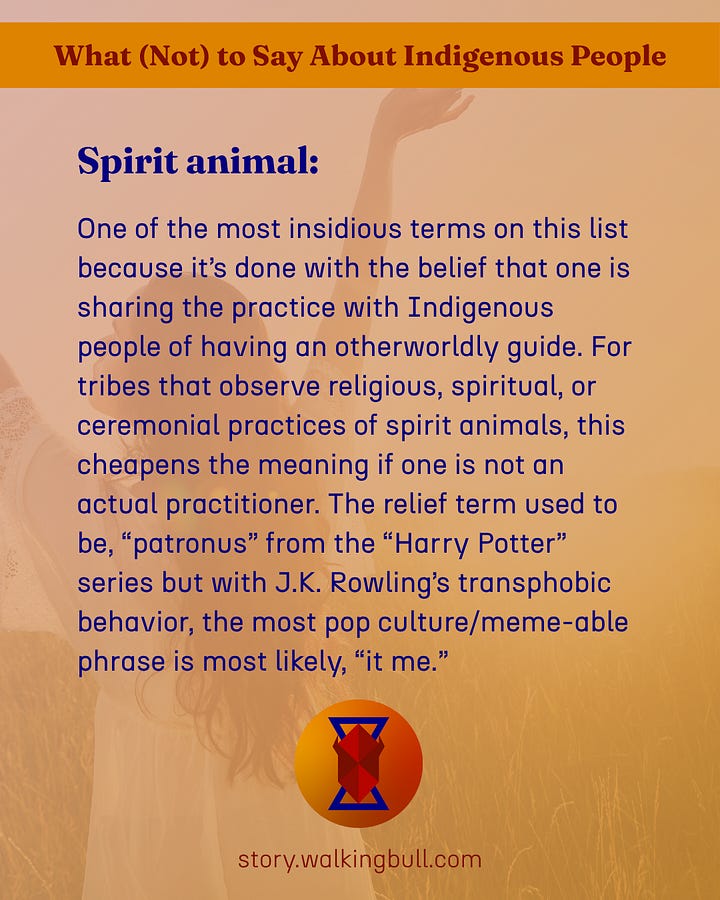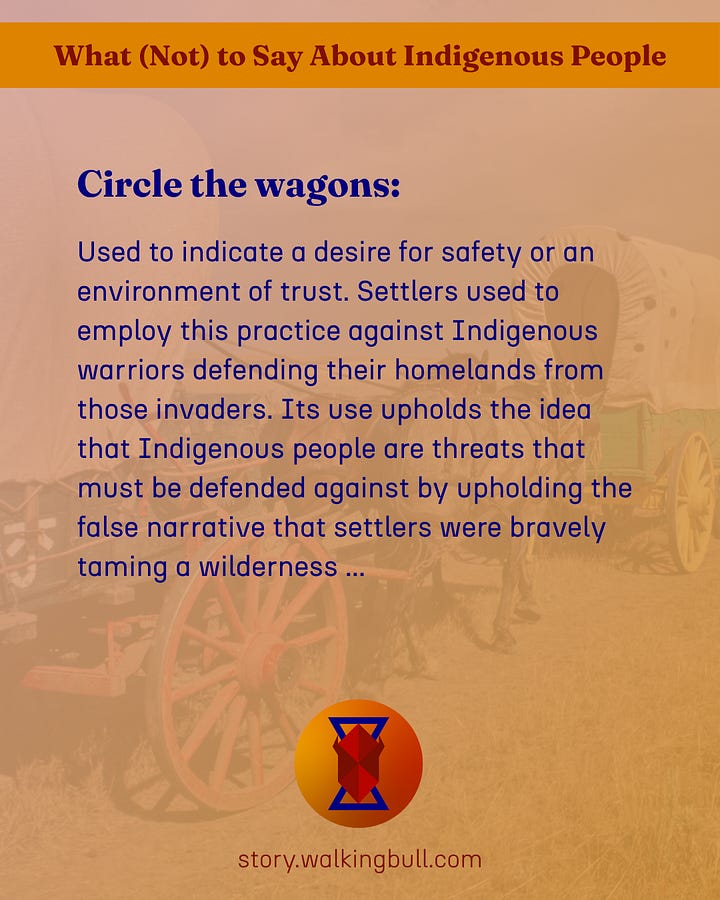Beyond the Anti-Indigenous Rhetoric
How uplifting basic education and principled learning makes solidarity accessible
Earlier this week, conservative dumpster fire Ann Coulter decided to turn her attention-seeking gaze to Dr. Melanie Yazzie, a professor of American Indian history and Indigenous feminist and queer theory at the University of Minnesota. This is par for course for the hollow, amoral conservative back-up id to Donald Trump, but what’s alarming is how quickly Dr. Yazzie’s contact information disappeared from her college’s website.
We live in Minnesota. Making a woman a target has lethal consequences. Coulter retweeted a post featuring Dr. Yazzie speaking on Palestinian solidarity and said, “We didn’t kill enough Indians.”
A good many leaders in Indian Country has come to defend Dr. Yazzie. Cherokee Nation Principal Chief Chuck Hoskin, Jr., Eastern Band of Cherokee Principal Chief Michell Hicks, National Congress of American Indians President Mark Macarro, and Native American Rights Fund Executive Director John E. Echohawk have all made statements in support of Dr. Yazzie and in calling out Coulter’s genocidal bloodlust.
It's important for us to show unity and solidarity in the face of such ugly wretchedness but how does something like Ann Coulter even get started?
In this case in particular, beyond an education (she’s a Cornell grad and got her law degree from Michigan), the origins of ignorance lies how we talk about groups of people, what the commonly held beliefs are about them and how they get cemented into our heads. To this day, the thing I know about how we talk about immigrant communities is how “hard working” they are, and while that’s true, making it a character of one community is how we flatten out the humanity of others.
Case in point, Dr. Yazzie wrote a stirring thought piece for the First Nations Development Institute on Native justice, “The Limits of Matriarchy: Rethinking Gender and Sexuality in Traditional Law.” In the piece, she reminds us that in order to achieve some sense of justice for a community, that community must be free to choose its own pathways forward.
“Indigenous feminism takes an uncompromising stance against colonial violence and envisions a future for all our relations that reflects the equality we all—LGBTQ2+, women, land, water, mountains, and otherwise—hold within the complex practices of kinship and mutual responsibility that structure our ways of life. Indigenous feminists understand that the health of our nations depends on how we respond when Indigenous women and LGBTQ2+ relatives are degraded. Indigenous feminists stipulate that only when our women and LGBTQ2+ relatives who face the most danger are once again valued, protected, and respected can we claim to be following traditional law. Indigenous feminists remind us that we must outsmart colonial knowledge to protect Indigenous lifeways, which is why Indigenous feminists critique the way tradition is sometimes used to uphold colonialism by reinforcing heteropatriarchy in tribal institutions.”
How we think of other groups of people, their autonomy, their sovereignty, their nuances requires us to hold more complexity than we think we can. Justice requires us to grow.
Narrative, too, requires skillful leveraging of perspectives, messengers, and moments to deliver a three-dimensional rendering of any group of people, Indigenous and 2SLGBTQ+ folks in particular. When I saw the tweet, I wanted to rage with everyone else until I interrupted myself long enough to remember that Ann Coulter lacks the capacity for empathy, or rather, she lacks the incentive (money and book sales) to give empathy space in her world.
We will never reach her. So we must focus on those who can be reached in the middle.
This week, I launched my guide What (NOT) to Say About Indigenous People not for folks like Coulter, or even folks like Dr. Yazzie. They are for people who know that anti-Indigenous narratives are out there, but are unsure of just what to do when they’re confronted with them. You can view the whole guide in the link above and below are some offerings I’ll be sharing on social media tomorrow.
